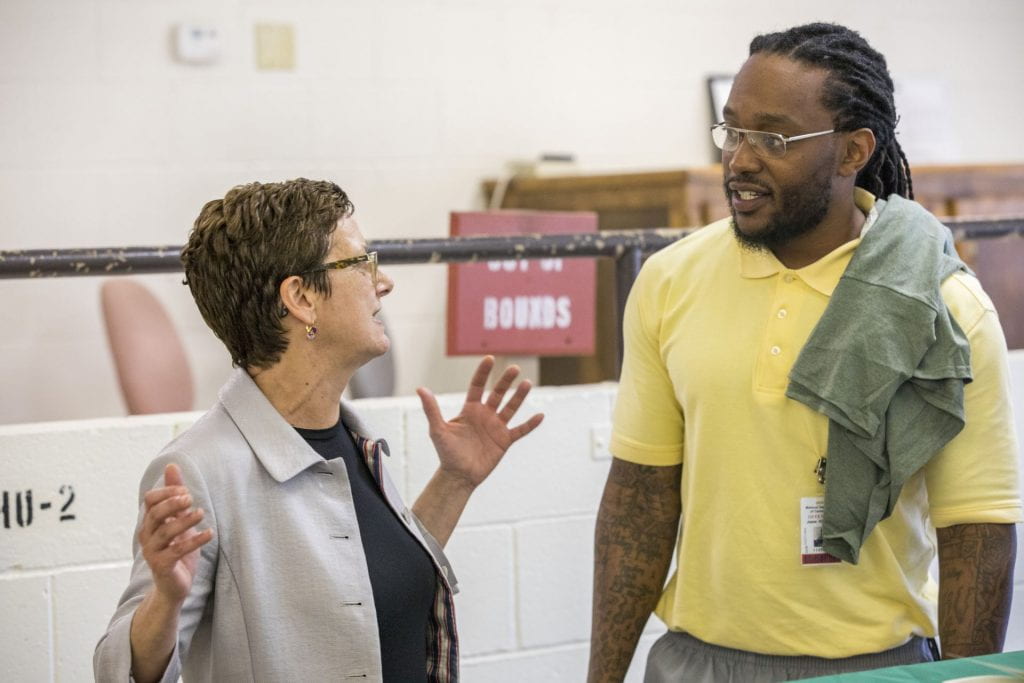
The Washington University in St. Louis Prison Education Project (PEP) started in 2011 as a conversation between Professor Emeritus Danny Kohl and the late Professor Maggie Garb. Mass incarceration was on the rise in the United States and incarcerated people were no longer eligible for the Pell Grant. Professors Kohl and Garb thought that Washington University could positively impact the lives of incarcerated individuals in Missouri by providing a free college education. Joined by like-minded colleagues, six faculty members (Danny Kohl, Maggie Garb, Jami Ake, Barbara Baumgartner, Leonard Green, and Garland Allen) began to chart a course of action for our soon-to-be program.
PEP was very fortunate to find a receptive host at a prison relatively close to campus (approximately 40 miles): the Missouri Eastern Correctional Center (MECC) in Pacific, Missouri, where Jennifer Sachse was the warden.
Crucial to the development of PEP was the assistance of the Saint Louis University (SLU) Prison Education Program, which started in 2008. In addition to providing invaluable advice, SLU hosted the third conference on higher education in prison, now known as the National Conference for Higher Education in Prison, in 2013. The conference provided crucial connections to other programs, pragmatic information about starting a program, and a positive and fortuitous meeting with the Director of the Missouri Department of Corrections, George Lombardi, who was enthusiastic about PEP’s plans to start another prison education program in the state.
In the summer of 2013, the PEP working group had grown to include other faculty members, including Robert Henke, who, along with Maggie Garb, became the co-director of PEP. PEP received $150,000 from the Bard Prison Initiative (BPI) to fund a three-year pilot program. BPI also provided logistical and technical support for PEP.
Over 70 prospective students at MECC applied to the program, and 30 of those applicants were accepted as the first cohort. In 2014-15, two courses were offered each semester. In addition, PEP provided one class per year to the MECC staff to secure their interest and support for the PEP program. PEP also began offering a monthly reading group at MECC for prospective students who been denied admission to the program. This reading group was designed to help these individuals work on skills necessary to strengthen their application for the next round of admissions.
With full financial support from Provost Holden Thorp, the program increased its course offerings to four courses per semester in 2016, and accreditation to grant Associates and Bachelor’s degrees at MECC followed. PEP graduated its first class of students in 2019.
In 2020, PEP was awarded a significant grant from the Andrew W. Mellon Foundation to expand into a women’s prison, launch a reentry program, and develop new technology to support higher education in prison.